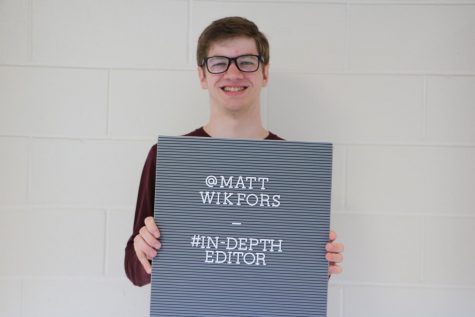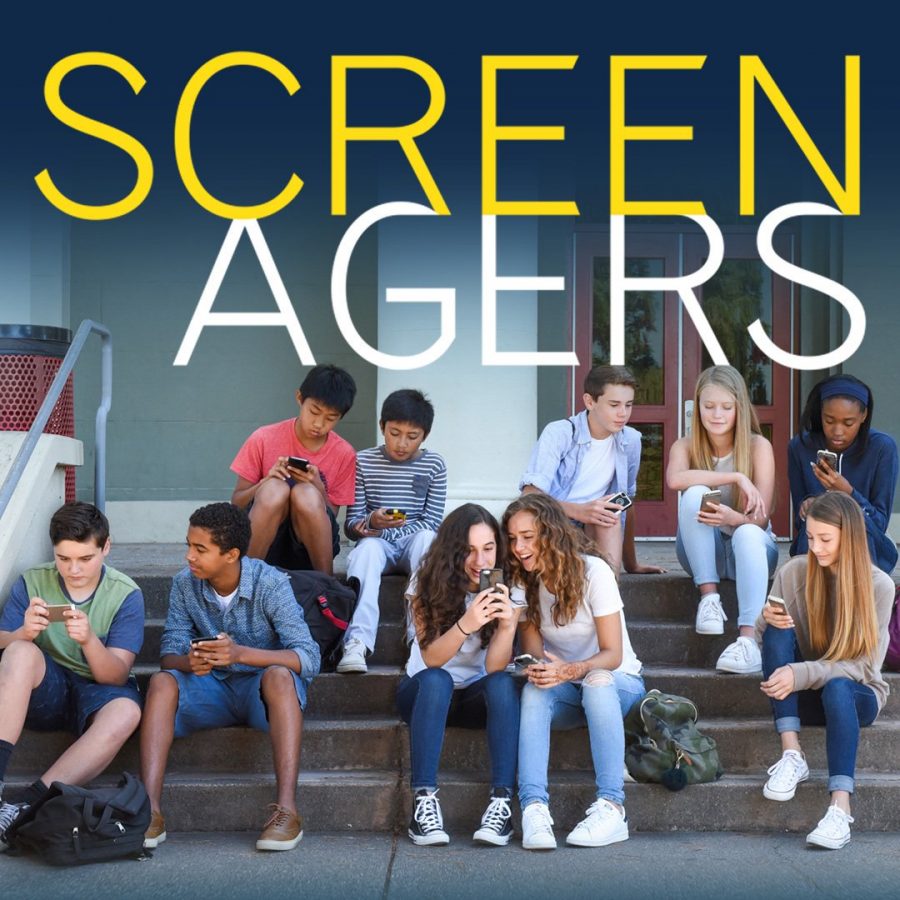Screenagers is Screened to Pascack Hills Students
On December 7, the entire student body viewed Screenagers, an award-winning documentary on screen addiction and the struggles kids and parents face with digital age, during their gym periods in the auditorium.
The film follows director Delaney Ruston as she struggles with the decision of buying her 12-year-old daughter an iPhone. Ruston knows the dangers of social media and the problems children face with screen addiction and tries to think of a way to get her daughter an iPhone and help her navigate through the digital world. The film jumps from location to location and gives true stories about screen addiction and how adults are dealing with the use of technology in schools and at home.
The film discusses the psychological and social effects of screen addiction and social media and filming crew travels from place to place to receive information from schools and parents struggling with screen time all across the country as well as a multitude of experts to weigh their inputs. The move attempts to answer the questions of how technology affects communication and social interaction as well as the science behind it.
“You’re so used to depending on technology that it affects face-to-face communication skills and empathy,” one expert in the movie said.
Through the scientific studies shown in the film, stimulation from technology and screen addiction is just like alcohol or drug addiction. According to the film, dopamine, a natural chemical in the body associated with pleasure, is released whenever new information is discovered, causing teens to go deeper and deeper into their phones, spending hours on end on social media, games, etc.
In addition to screen addiction, Screenagers also covers the dangers of sexting, violent video games, and gaming addiction as well. These sections focus on a girl who became bullied after texting a sexual photo to a boy she liked, a boy who throws violent temper tantrums when told to stop playing video games, and a college student who flunked out of college because of his gaming addiction. Here, the people affected by these incidents give first-person accounts of their struggles and act as warnings for how kids, teens, and parents should be cautious about screen usage.
At the end of the screening, Gale Mangold, a guidance counselor and member of the Hills-Valley Coalition, spoke briefly to the students to encourage some thought and self-reflection on their own screen usage.
“We think that the science behind it is real,” she said about the brain studies shown in the film. “It’s always a fast cut from photo to photo, thing to thing, even in your learning style.”
Mangold concluded the period by saying, “Don’t let [technology] by a barrier to your communication. Let it be an assistance.”
After the screening, some students felt that their views on screen addiction and technology use have changed.Daniel Zak, a junior who recently received an iPhone a few weeks ago, was intrigued by the science behind it.“I didn’t realize how much technology affected your brain,” Zak said.
On the other hand, most students did not feel very strongly about the movie.
“According to the video, being on your phone is as worse as doing drugs,” junior Alexandra Truszkowska said, regarding the very one-sided argument the move gave about technology use.
Junior Michael Ruberto also felt the same way about the information and the movie.“I feel like Screenagers did not really address both sides,” he said. “They exaggerated a lot of their points.”
For the most part, screen addiction does not see to be too large of a problem at Hills. Senior Devon Margulies said that the movie has not changed her outlook on the way she uses her phone and technology or the way technology is used in schools.
“My views have not changed very much since they didn’t really talk about technological advances,” she said. “I don’t have problems with my phone and prefer to talk to people face-to-face.”

Matt is a senior and this is his second year as the In-Depth editor for The Trailblazer. Matt is excited to lead writers into hard-hitting journalism and write exposés. Although he’s sad his time is ending soon, he knows that his proteges will do well, but until then, he is ready to teach them all he knows!












































